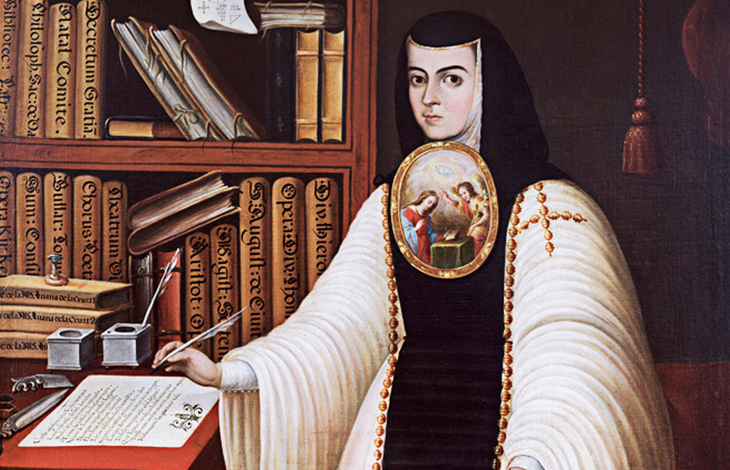17th-century letters illuminate lives of women

A newly discovered letter in the Latin American Library archives sheds new light on the life of famous 17th-century writer Sor Juana Inés de la Cruz, shown here in an early portrait by Juan de Miranda (1713).
The letters are more than three centuries old, but the brown ink is legible and the white cotton pages look almost new. The two unpublished manuscript letters, penned in the 1680s, are in the spotlight at the Latin American Library at Tulane University, and Hortensia Calvo is beaming with pride.
The letters were “stumbled upon” three years ago in the library"s extensive archive of documents from the Spanish American colonial period, says Calvo, the library"s Doris Stone Director. Their condition and contents are remarkable, providing new details about life in New Spain (now Mexico) and the friendship of two women of historical importance.
One of the letters sheds new light on Sor Juana Inés de la Cruz, a nun who was the first feminist of the New World and one of the foremost writers of all time in the Spanish language, Calvo says. Both letters are written by Sor Juana"s mentor and protector, MarÃa Luisa Manrique de Lara y Gonzaga, wife of the viceroy of New Spain (1680-1686). Very little was previously known beyond her relationship with Sor Juana.
“These letters give us a more complete picture of how a noble woman perceived life in the colonies at that time,” Calvo says, as Maria Luisa wrote to her cousin in Europe about her loneliness in the New World, the birth of her son there and her friendship with Sor Juana. Calvo describes Sor Juana as “an absolutely extraordinary woman of international renown, way ahead of her time” who was criticized by Catholic Church leaders for her writing and fame.
“This is a huge coup for Tulane to have these letters in our collections,” says Calvo, who has written a book about the letters with colleague Beatriz Colombi, a professor of literature at the Universidad de Buenos Aires, Argentina. Written in Spanish, the book is being published this spring in both Spain and Mexico, titled Letters from Lysi: Unpublished Correspondence From Sor Juana"s Mentor.
Records show that the library acquired the two letters in 1935, but no other information is available on how they were preserved for so many decades.
“This is one more treasure that we have that speaks to the literary and cultural life in the Spanish colonies.”—Hortensia Calvo, Doris Stone Director, Latin American Library
